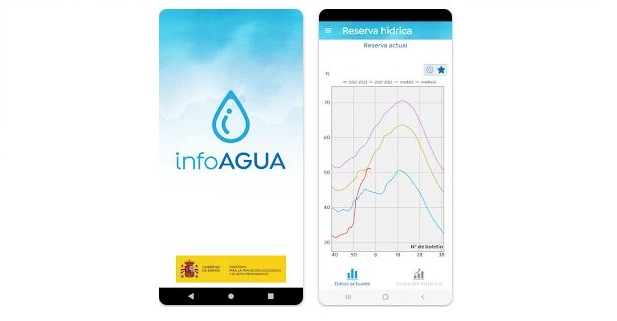-
- Water Status and Quality Monitoring Programmes
- Groundwater Status and Quality
- Superficial Water Status and Quality
- Protection of water from nitrates and pesticides
- Protección de las aguas frente a la eutrofización
- Contaminantes emergentes
- Especies invasoras en medios acuáticos continentales.
- Instructions, guidelines and protocols for measure and sample taking
- Archivos digitales de aguas subterráneas (ADEPAS)
-
- Hydrological Bulletin
- Assessment of natural regime water resources (SIMPA)
- Hydrology Yearbook Information System
- Sistema Automático de Información Hidrológica (SAIH)
- Evaluación de los Recursos Hídricos Procedentes de la Innivación (ERHIN)
- Official Network for monitoring the Quantitative Status of Groundwater
- Predicción estacional
- App infoAGUA
-
- Primera convocatoria ciclo urbano del agua
- Segunda convocatoria ciclo urbano del agua
- Primera convocatoria regadío
- Segunda convocatoria regadío
- Conferencia Sectorial de Medio Ambiente: distribución territorial de fondos del PERTE de digitalización del ciclo del agua
- Tercera convocatoria del ciclo urbano del agua
- Conexión Agua
El Boletín Hidrológico semanal
¿Qué es el Boletín Hidrológico semanal?
El Boletín Hidrológico es una publicación de periodicidad semanal realizada por el Área de Información Hidrológica, que recibe los datos que se originan en las Confederaciones Hidrográficas y en las Administraciones hidráulicas intracomunitarias, la Agencia Estatal de Meteorología y Red Eléctrica de España, realizando el tratamiento técnico de la información para su presentación como soporte de las decisiones de gestión hídrica que se deben tomar a nivel nacional, con sus implicaciones técnicas, económicas y sociales.
Su objetivo es el conocimiento de las reservas hídricas de la última semana, el seguimiento, análisis y publicación de los datos hidrológicos que permiten conocer el estado de los volúmenes almacenados en todos los embalses peninsulares con capacidad mayor a 5 hm3, la situación de los sistemas de explotación, de las reservas destinadas a riego y abastecimiento de poblaciones, la energía hidroeléctrica almacenada (cálculo teórico) y la producida real, los caudales fluyentes de los principales ríos de cada cuenca y las precipitaciones semanales (fuente AEMET).
Se presentan además informes hidrológicos de tendencia en forma de gráficos que ilustran la situación y evolución de las reservas hídricas. Para facilitar su interpretación se compara la situación referida a la fecha actual con la de la semana anterior, con la de los años precedentes, y con la media de los cinco años y diez años anteriores, todos referidos a la misma fecha que se presenta la información.
Debe tenerse en cuenta que todos los datos son provisionales y sujetos a revisión y validación.
En este fichero excel se recogen los datos de capacidad y reserva hídrica de cada uno de los embalses peninsulares mayores de 5 hm3 desde el año 1988.
Novedades: App infoAGUA
La aplicación infoAGUA facilita la consulta de la información sobre la cantidad y calidad del agua en España, y sobre la gestión del riesgo de inundación. De esta forma, el usuario puede ser consciente de su vulnerabilidad y permanecer informado sobre los distintos aspectos relacionados con el agua en el entorno de su interés.
La elaboración de la app se enmarca dentro de la medida de los PGRI destinada a la mejora del conocimiento sobre la gestión del riesgo de inundación.
Galería de imágenes - Evaluación Recursos Hídricos Procedentes de la Innivación
 Campaña Medición Abril 2017. Valle Ara-Otal (Pirineos)
Campaña Medición Abril 2017. Valle Ara-Otal (Pirineos)
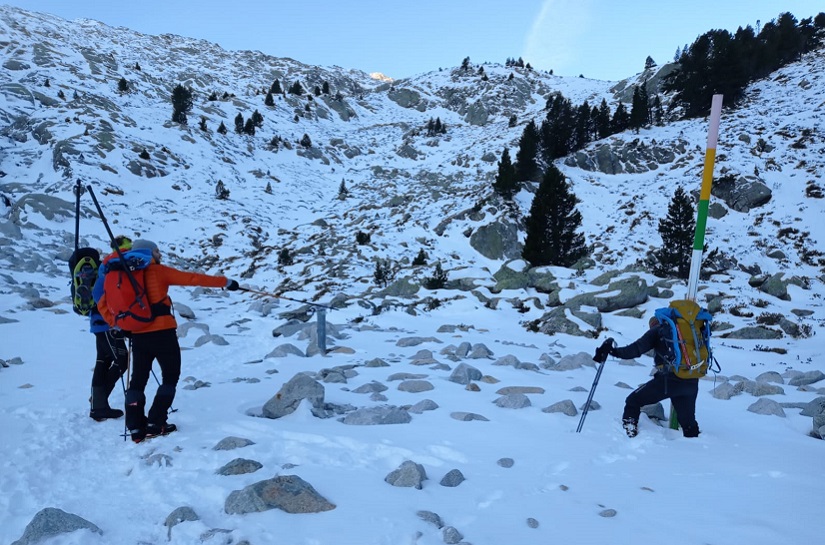 Campaña de medición Glaciar de la Maladeta Octubre 2020
Campaña de medición Glaciar de la Maladeta Octubre 2020
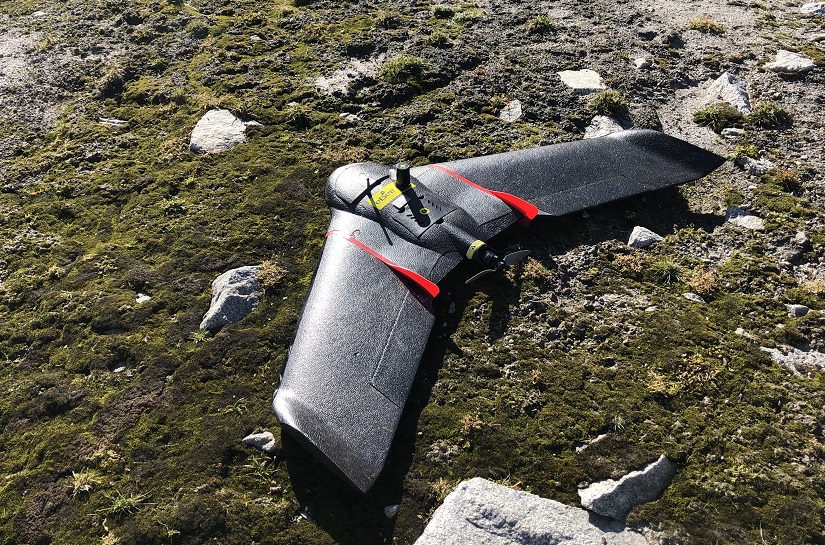 Dron ebee utilizado para la medición del Glaciar de la Maladeta 2019
Dron ebee utilizado para la medición del Glaciar de la Maladeta 2019
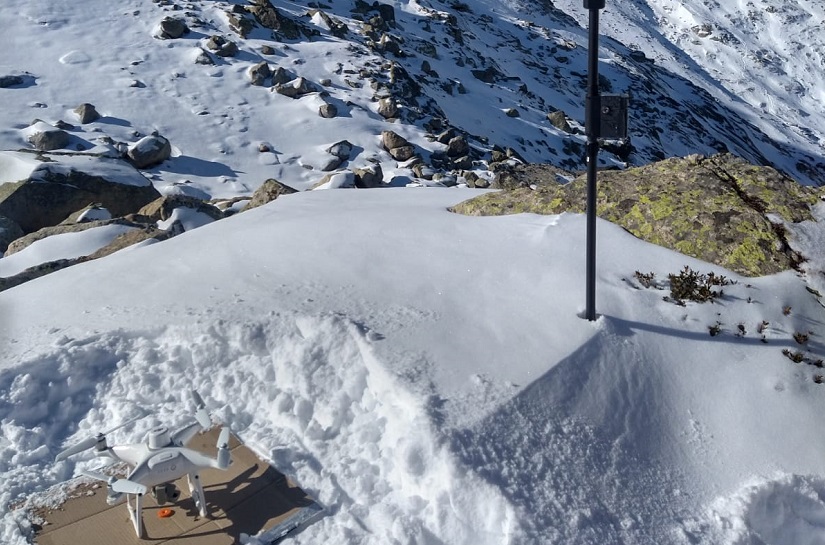 Drone Phantom DJI utilizado en la medición de espesores
Drone Phantom DJI utilizado en la medición de espesores
 Equipo de Tragsatec Accediendo al glaciar de la Maladeta Octubre 2020
Equipo de Tragsatec Accediendo al glaciar de la Maladeta Octubre 2020
 Equipo de medición de densidad y espesor de nieve tipo snow tube
Equipo de medición de densidad y espesor de nieve tipo snow tube
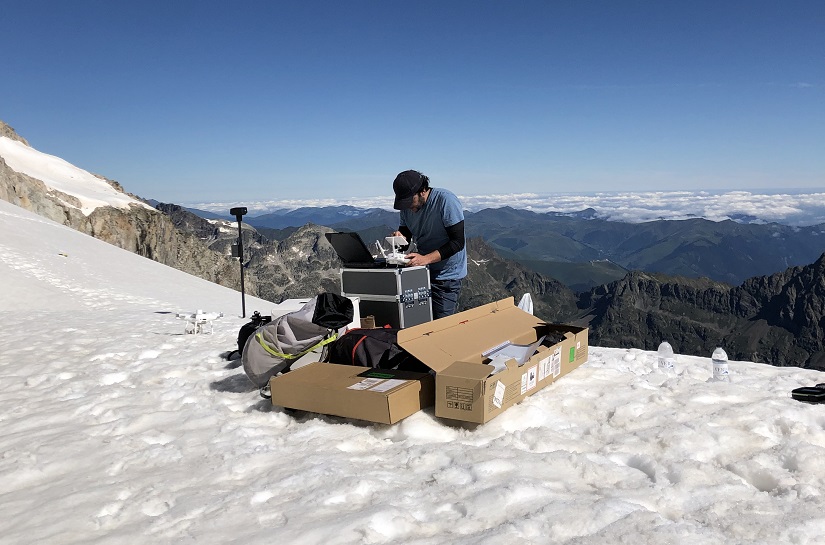 Equipo de medición fotogrametria aerotransportada. Glaciar de la Maladeta 2020
Equipo de medición fotogrametria aerotransportada. Glaciar de la Maladeta 2020
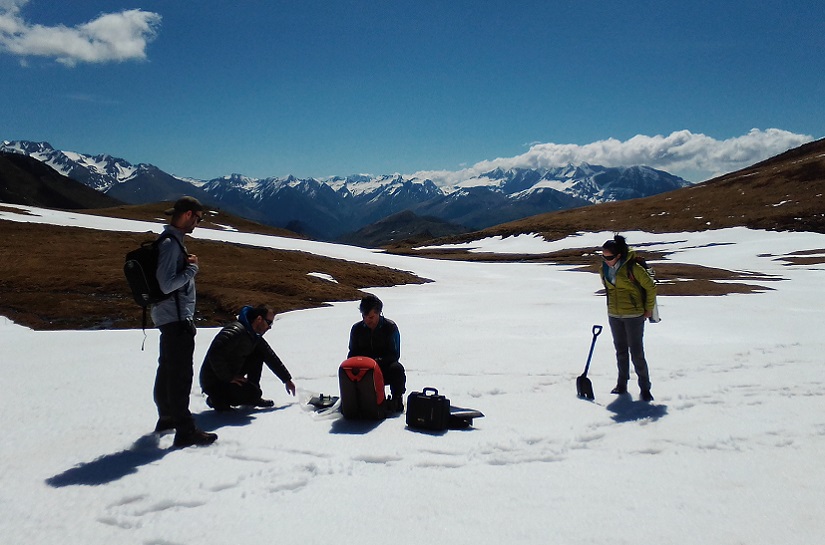 Equipo de Tragsatec en colaboración con el IPE en cuenca experimental de Izas
Equipo de Tragsatec en colaboración con el IPE en cuenca experimental de Izas
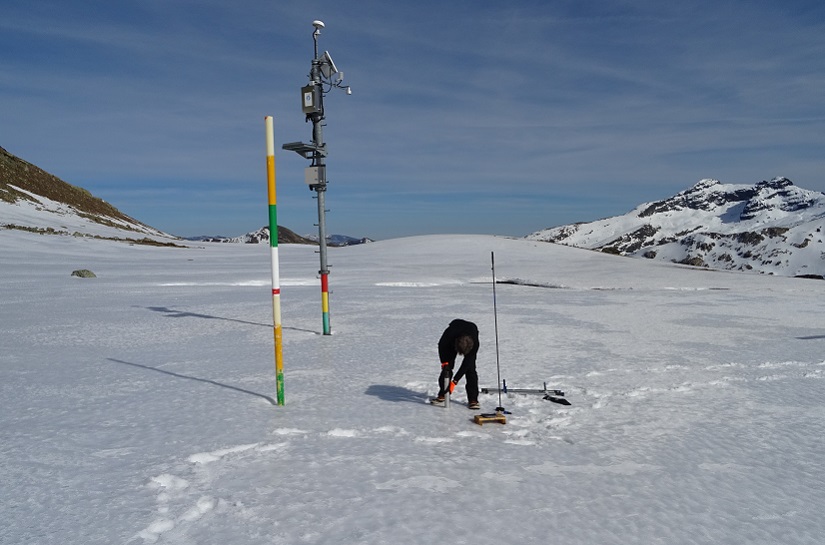 Extracción testigos de nieve 2017. Telenivómetro y Pertiga de Fuentes Carrionas (Sist. Cantábrico)
Extracción testigos de nieve 2017. Telenivómetro y Pertiga de Fuentes Carrionas (Sist. Cantábrico)
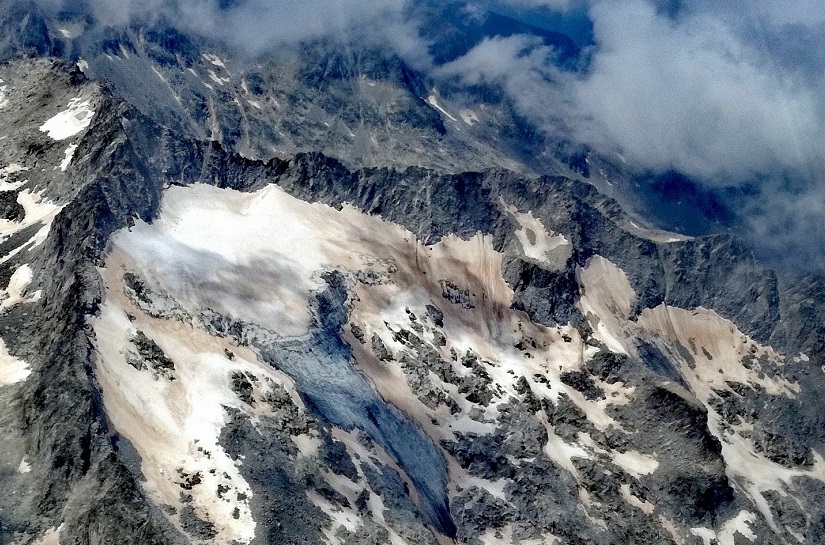 Foto aérea del Glaciar de la Maladeta 2017
Foto aérea del Glaciar de la Maladeta 2017
 Helicóptero utilizado en la campaña de medición de Sierra Nevada en 2017.
Helicóptero utilizado en la campaña de medición de Sierra Nevada en 2017.
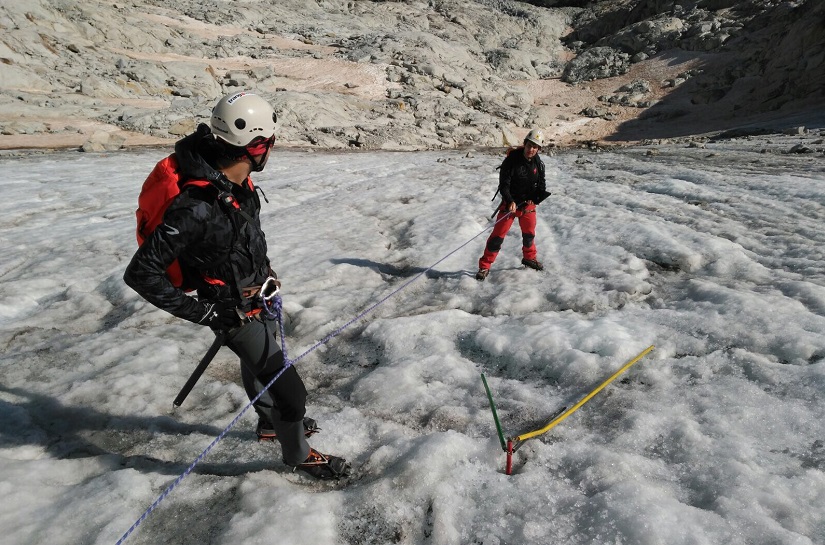 Medición Balizas en el Glaciar de la Maladeta 2017
Medición Balizas en el Glaciar de la Maladeta 2017
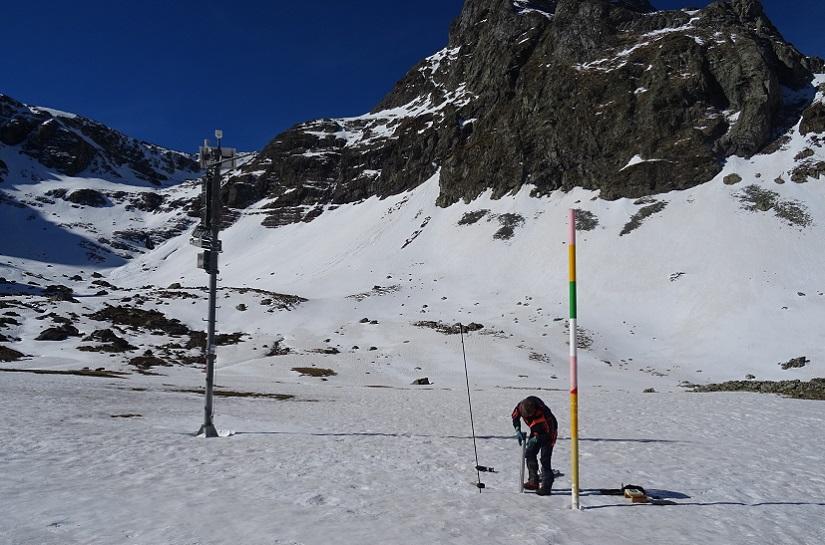 Medición de espesor y densidad nival en Canal Roya (Pirineos). 2019
Medición de espesor y densidad nival en Canal Roya (Pirineos). 2019
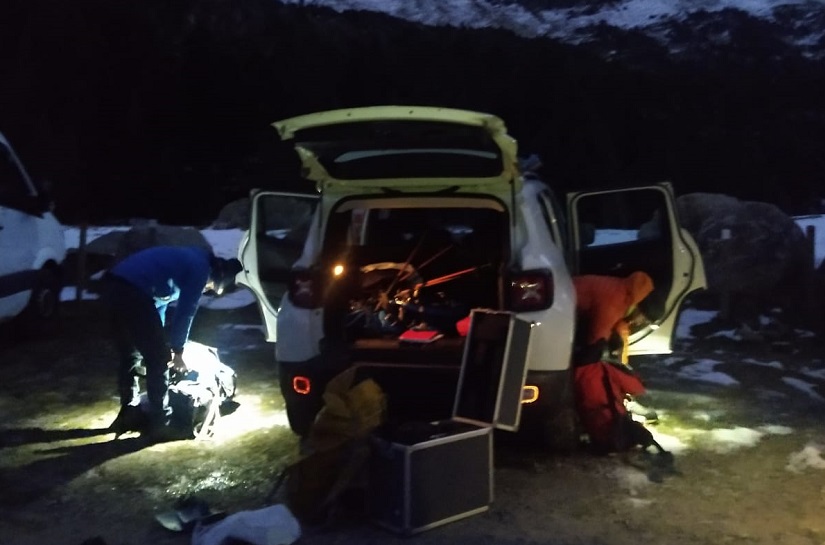 Preparación de equipo para ascensión a la Maladeta 2019
Preparación de equipo para ascensión a la Maladeta 2019
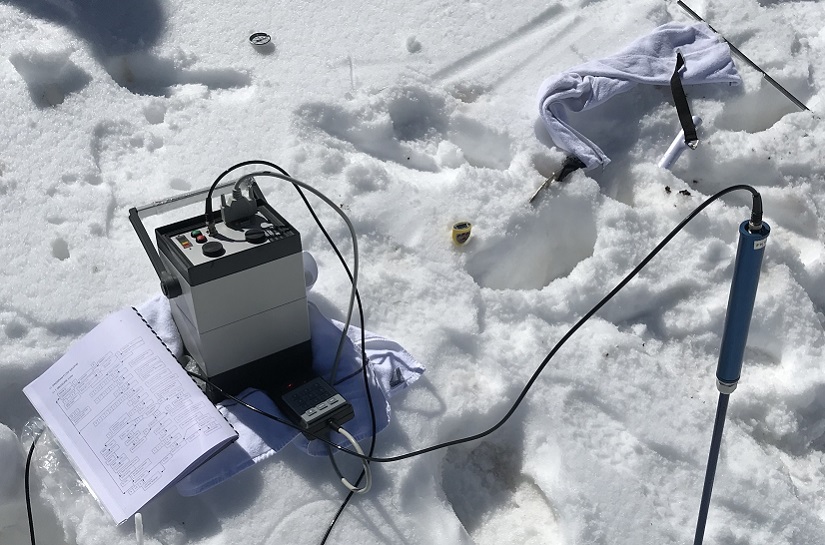 Sonda Snowfork para medición de densidad de la nieve
Sonda Snowfork para medición de densidad de la nieve
 Tecnico de Tragsatec realizando vuelo fotogramétrico sobre glaciar de la Maladeta
Tecnico de Tragsatec realizando vuelo fotogramétrico sobre glaciar de la Maladeta
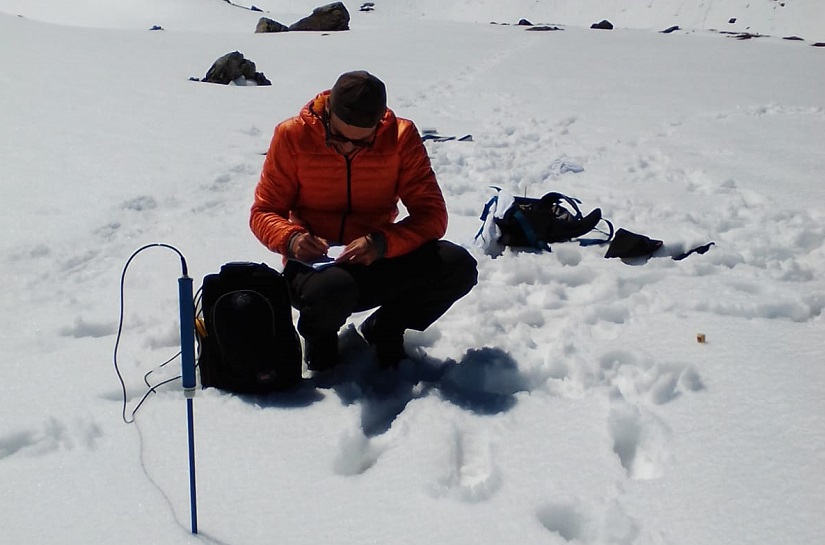 Toma de datos de espesor y densidad Pirineos 2019
Toma de datos de espesor y densidad Pirineos 2019
 Zanja para la medición de densidad en el perfil de nieve con el uso de wedge cutters
Zanja para la medición de densidad en el perfil de nieve con el uso de wedge cutters
This page provides information on cookies we use: We use our own and third-party cookies to keep your session active, personalise your experience, and collect anonymous statistics about how you use this website. You can choose to accept all cookies or select which types you'd like to allow. To learn more about the cookies we use, read our Cookies Policy.
We use two types of cookies on this site. First, there are Functional Cookies, which are essential for the website to work properly. They store session data to make your experience smoother and more convenient. On the other hand, Analytical Cookies collect information about how you use the portal, without personal data, helping us provide a better and more tailored service.
Introduction to the Use of Cookies on the MITECO.gob.es Website
Cookies are small files that are stored on your device when you visit a webpage. They are essential tools that help provide many of the services available on the information society. Among other things, cookies allow a webpage to store and retrieve information about a user's browsing habits or their device. Based on this information, they can be used to recognise the user and enhance the service provided.
Types of Cookies
Depending on the entity that manages the domain from which the cookies are sent and processes the data, there are two types of cookies: first-party cookies and third-party cookies.
There is also a second classification based on how long the cookies remain stored in the user's browser: session cookies and persistent cookies.
Finally, cookies can also be classified into five types based on the purpose for which the data is processed: technical cookies, personalisation cookies, analytics cookies, advertising cookies, and behavioural advertising cookies.
For more information on this, you can refer to the Guide on the use of cookies from the Spanish Data Protection Agency.
Cookies used on the website
The web portal of the Ministry for Ecological Transition and the Demographic Challenge uses Adobe Analytics, an analytics tool that helps website and application owners understand how visitors interact with their content. Adobe Analytics uses a small number of cookies to collect data and generate usage statistics for websites. This information is sent anonymously and is not shared with third parties under any circumstances. You can choose to accept or reject these cookies, as they do not affect the portal’s functionality. However, they help provide valuable information that allows us to offer a better and more tailored service. For more information about Adobe Analytics cookies and privacy, please refer to the following links:
Additionally, pages featuring content from social network X will only set cookies if the user is logged into the X site. For more details on these cookies, please refer to the following link: Privacy on Social Network X
Finally, a technical cookie named MITECO-compliance is stored, which is a first-party, technical, and session-based cookie. It manages user consent for the use of cookies on the website, remembering which users have accepted them and which have not, ensuring that those who have accepted are not shown cookie consent messages at the top of the page. This cookie is essential for the proper functioning of the portal.
Cookies Policy Acceptance / Rejection
The Ministry for Ecological Transition and the Demographic Challenge gives you the option to accept or reject cookies that are not essential for the portal's operation. Upon accessing the portal, a message will be displayed in the centre of the page with information about the cookie policy and the following options:
· Firefox
· Chrome
· Safari
